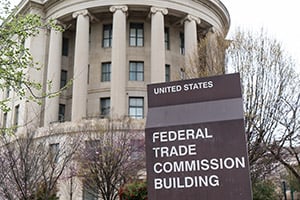
[ad_1]
 A Wall Street Journal report dives into illegitimate claims of identity theft facilitated by credit repair companies under the guise to help consumers.
A Wall Street Journal report dives into illegitimate claims of identity theft facilitated by credit repair companies under the guise to help consumers.
12/09/2022 11:40 A.M.
4 minute read
Illegitimate claims of identity theft from credit repair companies that temporarily improve consumers’ credit scores and credit reports are an increasing issue for lenders, the credit reporting system, regulators and consumers, according to a report from The Wall Street Journal (a subscription may be required).
The Federal Trade Commission launched a site, identitytheft.gov, in 2016 for consumers to file claims of fraudulent accounts on their credit report and send them to the credit reporting agencies (CRAs) Equifax, TransUnion and Experian.
According to The Wall Street Journal report, the FTC’s site provided consumers more recourse for identity theft claims than filing a police report.
The FTC saw approximately 588,000 cases of identity theft related to credit cards, auto loans and other financing in 2021, including legitimate and illegitimate reports, according to the article.
In most cases, CRAs have to remove the information that is the subject of an identity theft or other fraudulent claim while it is reviewed, then can reinstate it if it is found to be a legitimate account.
However, CRA industry representatives said that “unscrupulous credit-repair companies are a bigger portion of the problem,” according to The Wall Street Journal.
Here are a few other highlights from the article:
- Consumers can flag issues on their credit reports without relying on credit repair companies, which charge fees for the services and may not yield any results. The FTC has filed suit against credit repair companies in recent years.
- Other disputes outside of identity theft are plaguing the credit reporting system when they require investigations, but contain little information other than that an item on a consumer’s credit report is not correct.
- False claims of identity theft or other errors at the hands of credit repair companies are called “credit washing,” and make a consumer’s credit report appear better than it is, at least on a short-term basis.
ACA’s Take
A new Consumer Financial Protection Bureau circular focuses on dispute investigation requirements for CRAs and data furnishers, ACA International previously reported.
As the CFPB looks at these and other Fair Credit Reporting Act issues, they can help legitimate furnishers by acting against those credit repair companies that behave in unscrupulous ways, flooding legitimate processes with fraudulent and/or irrelevant disputes, which places a real burden on furnishers to have strong systems to tell the difference.
For Americans to realize the full benefits of a credit-based economy, organizations in each part of the ecosystem need to have strong compliance management systems—to adhere to the relevant laws—and regulators need to keep bad actors out of the system.
Legislation at the state level is also addressing this issue. In California, the state’s Department of Financial Protection and Innovation will be required to register and regulate credit services organizations after Gov. Gavin Newsom signed an amended version of the Credit Services Act of 1984 this fall.
The law, authored by California Assemblymember Blanca Rubio, implements changes to credit services organizations’ processes to submit a dispute to debt collectors and written communications to a credit reporting agency or data furnisher. It takes effect Jan. 1, 2023, ACA previously reported.
The California Association of Collectors Inc. supports the law because it provides transparency to the processes between credit repair companies, debt collectors and consumers. It also strengthens California’s regulation and oversight of credit services organizations.
There needs to be a push at state and national levels for consumer education about credit repair organizations to help consumers understand the parameters of what they offer and that there are other options.
With that in mind, Know My Debt, one of ACA’s most popular consumer education resources, features freshly updated content, ACA previously reported.
ACA members can include the link to Know My Debt on your agency’s home page and give it to collectors to share with consumers.
Developed and recently updated by ACA members, Know My Debt delivers clearly worded explanations to help consumers improve their financial literacy and resolve their debts.
By including links to vetted financial literacy resources on your website, you can help consumers find the critical information they need to feel comfortable talking to your company’s representatives.
When creating a link on your website, ACA recommends calling it Know My Debt: Explaining Consumer Rights and Navigating Debt Solutions.
Visit the Know My Debt website to learn more about these valuable resources.
If you have executive leadership updates or other member news to share with ACA, contact our communications department at [email protected]. View our publications page for more information and our news submission guidelines here.
[ad_2]
Source link







